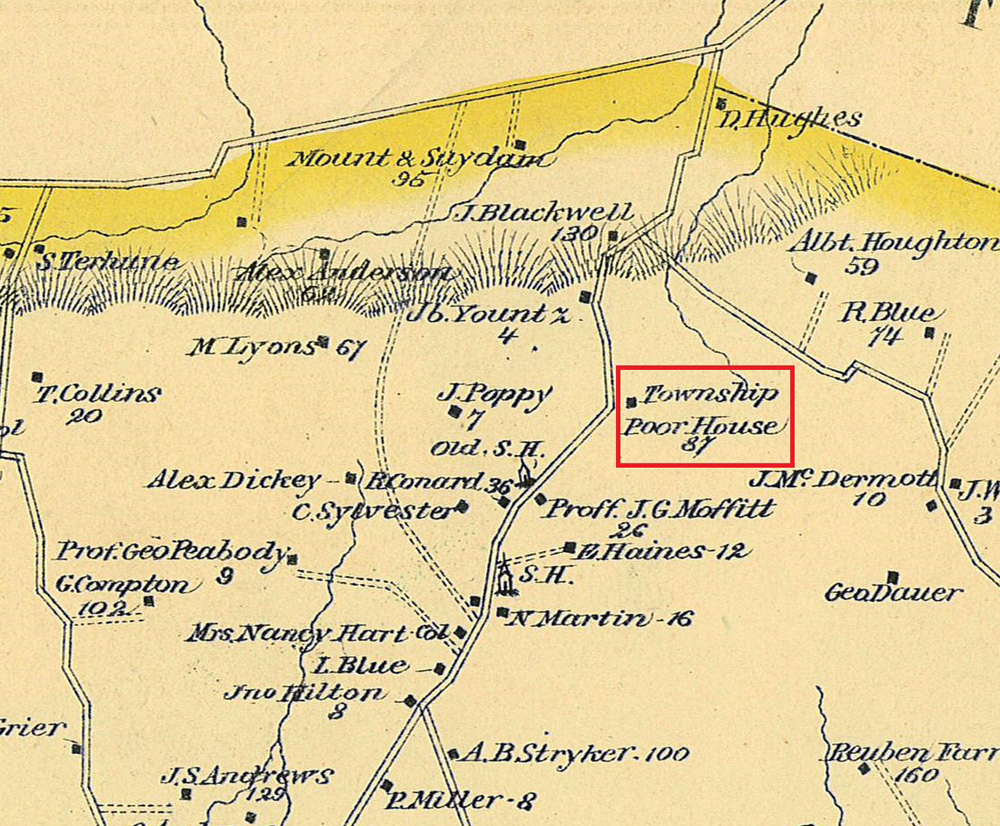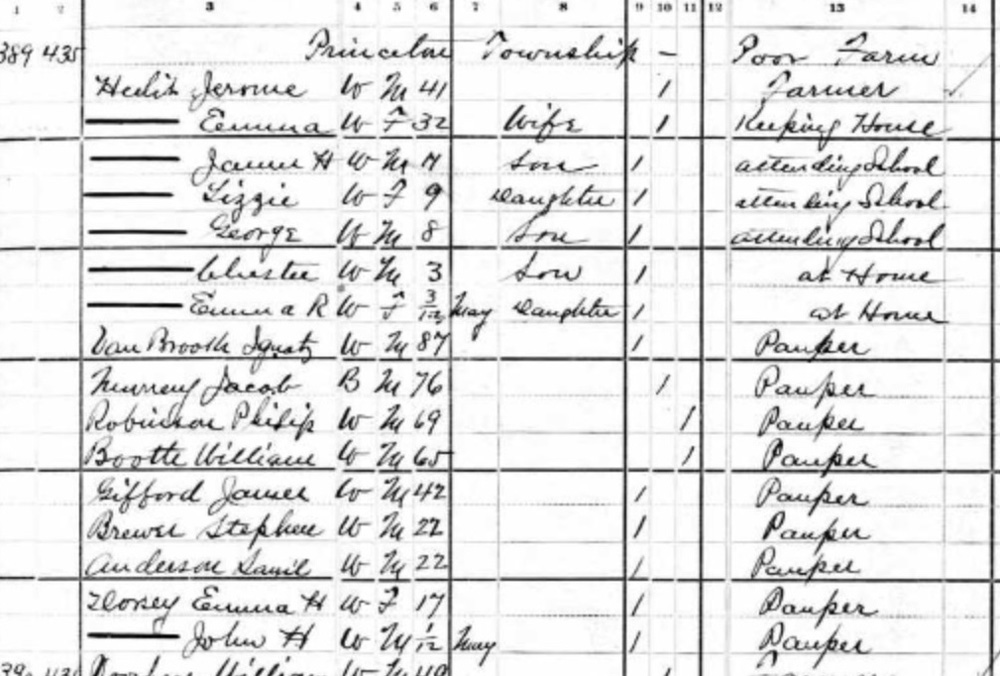13. Agricultural Land as Social Welfare
What’s growing here? Beets and onions
In the nineteenth century, Princeton Township allocated agricultural land to support its most vulnerable residents. The “Poor Farm,” near Mt. Lucas Road, opened in 1842 as an orphan asylum, soon transitioning to house not only Princeton’s indigent poor, but also the town’s elderly, physically and mentally disabled, and unwed mothers and children. Princeton’s Poor Farm mirrored poorhouses across the U.S., where needy Americans were housed and put to work. Scholars debate whether these institutions taught residents job skills or punished them with hard labor.
In addition to the “paupers” resident at the Poor Farm, the farm was also home to a paid steward, typically a family of farmers, who managed the farm, which produced onions, beets, potatoes, hay, corn, pork, and other products for sale or exchange.
Residents at the Poor Farm usually stayed not more than one or two years. During their stay, the Township paid for medical care, food, recreation, and other needs, including purchasing clothing for the tenants.
The number of residents at the Poor Farm declined at the turn-of-the-century, as the Township instead aided needy residents in their own homes. By 1911, the eighty-seven acres were leased to a farmer to cultivate as an ordinary farm.
However, some agricultural land in New Jersey continues to serve a social welfare or reforming function. The New Jersey Department of Corrections operates six dairy and crop farms. Sentenced offenders live and work at these farms, which are shown to reduce their tendency to reoffend once released. Grow-A-Row encourages New Jersey farmers to donate produce to food pantries.
This 1875 map of Princeton Township shows the “Township Poor House” amidst other family farms.
Atlas of Mercer County, Everts & Stewart, 1875. (detail. emphasis added.)

This 1880 census lists the residents of the Poor Farm, including the Hulit family with their five children, who stewarded the farm. Also listed are six “paupers.” James Gifford, Stephen Brewer, and Samuel Anderson are listed as mentally disabled, Samuel as a result of “use of tobacco in youth.” Emma Dorsey is a seventeen-year-old unwed mother, listed with her infant son. William Booth is blind and the first three men listed were institutionalized because of their old age.
U.S. Census Bureau, 1880, Princeton, Mercer, New Jersey, Schedule 1